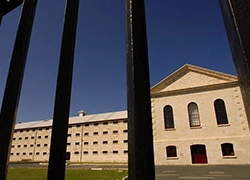The use of signal jammers (jammers) in prisons to block illegal mobile phone communications has become a common security measure. However, the claim that cell phone antennas can counteract these prison jammers is considered completely wrong. According to the expert opinion of José Luis Peralta, a former member of the Federal Telecommunications Commission (Cofetel) and a well-known engineer, this view has no technical basis.
Experts explain signal jammers and cell phone antennas
Peralta stressed that cell phone antennas cannot counteract cellphone jammers in prisons. On the contrary, signal jammer blockers may interfere with the services of antennas around them. He explained that jammer devices in prisons must be installed in a directional manner to prevent them from interfering with communication services outside the prison. For signals inside prisons, improper installation and irregular switching of equipment are the main reasons for poor interference.
Technical issues: effectiveness of jammers
Peralta pointed out that jammer blockers in prisons, if properly installed and adjusted to the appropriate power, can effectively block signals inside the prison. However, in practice, many prisons have poor blockers due to poor installation or irregular switching. For best results, multiple signal jammers must be installed inside the prison to ensure that the signal covers the entire area, but the impact of these devices must be strictly limited to the prison.

Peralta reviewed past experience and pointed out that the former Cofetel proposed technical standards for the use of signal blockers in prisons ten years ago, aiming not to affect mobile communication services outside the prison. However, these standards have not been fully implemented. Experts generally believe that in addition to the number of devices themselves and the installation effect, the key lies in the continuous operation and supervision of the equipment.
Challenges and suggestions for the implementation of signal jammers in prisons

Peralta suggested that in order to ensure the effectiveness of signal blockers, these devices must be kept running 24 hours a day, and a person in charge needs to be clearly designated to oversee the correct installation and continuous operation of the equipment.
At the same time, banning mobile phones and chargers from entering prisons is also one of the key measures.
In addition, communication shielding measures in prisons should be strictly implemented in accordance with technical standards and operating procedures.
Experts clearly pointed out that mobile phone antennas cannot offset signal blocker jammers in prisons, and the effectiveness of signal blockers depends on their correct installation and continuous operation. In order to improve the effectiveness of blockers in prisons, various technical and operational issues in equipment installation, operation and management must be resolved.


